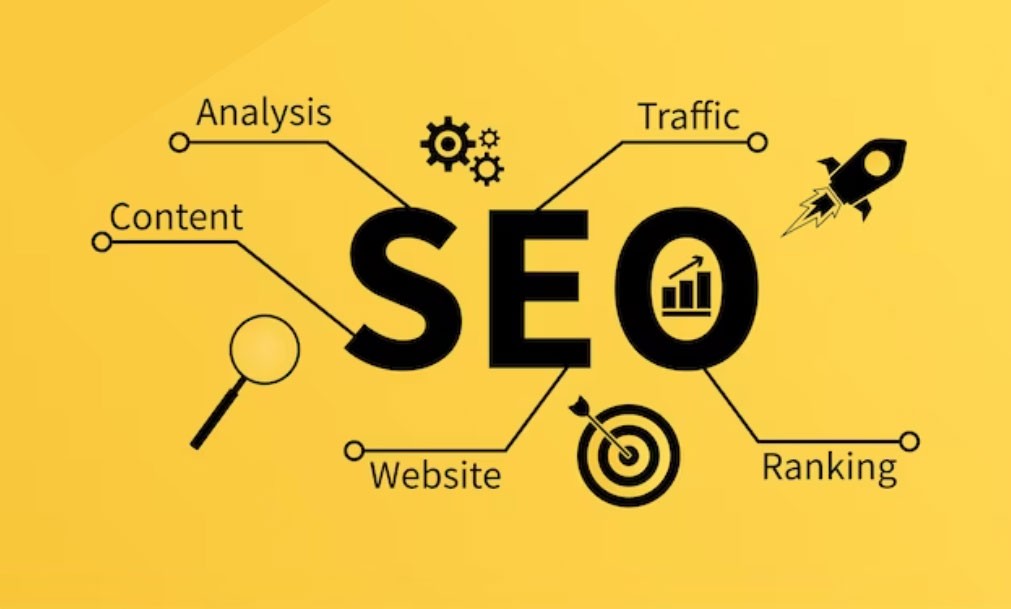In the world of digital marketing, staying competitive online requires more than just content creation. It demands insight, planning, and technical expertise—all provided by an SEO strategist. These professionals analyze, plan, and implement strategies that help websites rank higher on search engines, increase visibility, and generate quality traffic.
Whether you’re a business owner, a digital marketer, or someone looking to break into the SEO industry, understanding the role of an SEO strategist can offer a competitive edge.
What is an SEO Strategist?
An SEO strategist is a digital marketing expert responsible for creating and executing a comprehensive search engine optimization strategy. Their job involves:
- Conducting keyword and competitor research
- Creating on-page and off-page SEO plans
- Analyzing website performance and search data
- Collaborating with content creators and developers
They don’t just optimize websites; they align SEO with business goals, ensuring long-term online growth.

Why Your Business Needs an SEO Strategist
In today’s competitive landscape, generic SEO tactics don’t cut it. Businesses need tailored strategies rooted in data. This is where an SEO strategist adds immense value:
- Improves Search Visibility: Increases your website’s ranking for target keywords.
- Drives Organic Traffic: Attracts high-intent users who are more likely to convert.
- Reduces Paid Ads Dependence: Sustainable growth without relying heavily on paid advertising.
- Keeps Up with Algorithm Changes: Adapts quickly to Google’s updates using ethical practices.
SEO Strategist Job Description
If you’re considering this career path or hiring one, here is a typical SEO strategist job description:
Key Responsibilities
- Perform keyword research and competitive analysis
- Develop technical SEO audits and reports
- Create SEO strategies aligned with business goals
- Optimize content structure, metadata, and internal linking
- Monitor and report on performance metrics using tools like Google Analytics, SEMrush, or Ahrefs
- Guide content strategy and collaborate with other marketing teams
Essential Skills
- Analytical thinking and attention to detail
- Strong understanding of SEO tools and analytics platforms
- Excellent written and verbal communication
- Up-to-date with SEO trends and algorithm changes
Work Environments
- Digital marketing agencies
- In-house marketing departments
- Freelance or consultancy roles
The Importance of a Tailored SEO Strategy
Having a clearly defined SEO strategy is vital to online success. A strategy outlines:
- Target Audience: Who are you trying to reach?
- Keyword Targets: What search terms are valuable?
- Content Plan: What pages and blog posts will be created?
- Technical Goals: How will site structure, speed, and crawlability be optimized?
Without a roadmap, SEO becomes guesswork. A strategist provides the structure and expertise to ensure efforts are purposeful and effective.
Steps to Build an Effective SEO Strategy
An SEO strategist typically follows these steps when crafting a winning plan:
1. Audit Existing Website
Check for technical issues, broken links, duplicate content, poor UX, and other on-site problems.
2. Keyword & Competitor Analysis
Identify opportunities and threats by analyzing search volume, keyword difficulty, and top-performing competitors.
3. Content Optimization
Revise existing pages and plan new ones that align with high-performing keywords and user intent.
4. Technical SEO Improvements
Ensure fast loading speeds, mobile-friendliness, secure HTTPS, schema markup, and optimized crawl budget.
5. Backlink Strategy
Earn high-quality backlinks through guest blogging, digital PR, and outreach campaigns.
6. Measure & Refine
Use tools like Google Search Console and Analytics to monitor KPIs and adjust the strategy.
SEO Strategist Certification
If you’re aiming to become an expert in the field, pursuing an SEO strategist certification can boost your credibility and job prospects. Some well-known certification programs include:
- Google SEO Certification (Coursera)
- SEMrush SEO Toolkit Course
- HubSpot SEO Certification
- Yoast SEO Academy
These certifications validate your understanding of SEO fundamentals, tools, and implementation strategies, which are essential in gaining client or employer trust.
Google’s EEAT and the SEO Strategist Role
Google’s EEAT (Experience, Expertise, Authoritativeness, Trustworthiness) guidelines are a benchmark for quality. An SEO strategist ensures that your content and overall site adhere to these standards:
- Experience: SEO strategists ensure content is written by people with real experience in the topic.
- Expertise: They validate sources and include facts backed by data.
- Authoritativeness: They help build a strong backlink profile from reputable sites.
- Trustworthiness: They ensure websites are secure, accurate, and up-to-date.
Following EEAT boosts not only rankings but also user trust and engagement.
When Should You Hire an SEO Strategist?
You should consider hiring an SEO strategist if:
- Your website isn’t ranking for targeted keywords
- Organic traffic is declining or stagnant
- You’re launching a new website or rebranding
- You lack in-house SEO knowledge
- You’re entering a competitive digital space

Freelance vs In-House SEO Strategist
Depending on your needs and budget, you can choose between hiring a freelancer or bringing someone in-house.
Freelancers offer flexibility and often work on a project basis, ideal for small businesses. In-house strategists are better suited for larger businesses with ongoing SEO needs and integration with other departments.
How to Evaluate an SEO Strategist
Here are key questions to ask before hiring:
- What is your SEO process?
- Can you show case studies or results?
- How do you measure success?
- Do you follow Google’s guidelines (White Hat SEO)?
- What tools do you use?
The right strategist will not promise overnight results but will focus on long-term growth and ethical practices.
Tools Every SEO Strategist Uses
An experienced strategist will rely on tools to streamline their workflow:
- Google Search Console: For performance and indexing issues
- Ahrefs / SEMrush: For keyword and backlink analysis
- Screaming Frog: For technical SEO audits
- Google Analytics: For tracking user behavior
- Surfer SEO / Clearscope: For content optimization
Final Thoughts
A qualified SEO strategist is more than a technician; they are digital architects who design SEO blueprints that lead to long-term success. With the right skills, certifications, and strategic thinking, they drive meaningful growth by ensuring your brand shows up where your audience is searching.
If you’re ready to elevate your digital presence, invest in an SEO strategist who aligns with your goals, understands your industry, and builds strategies rooted in expertise and trust.








